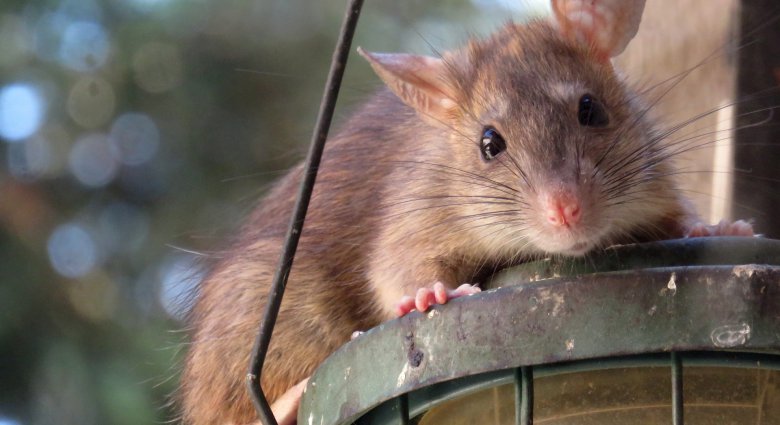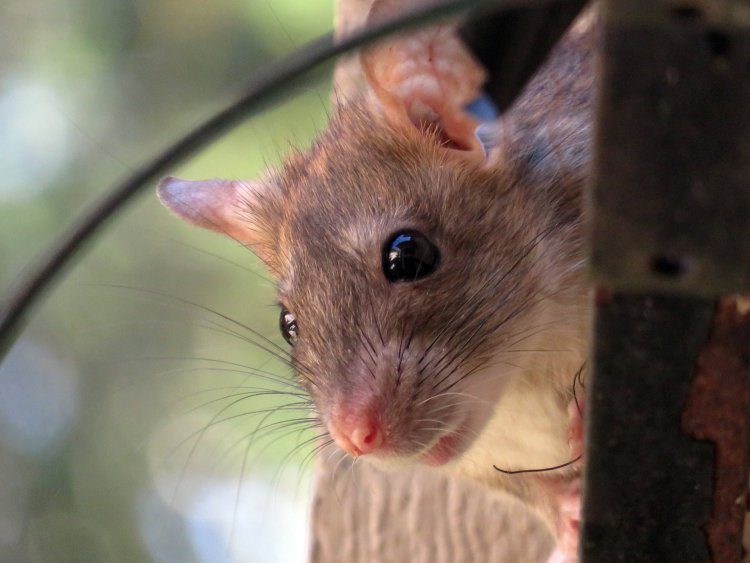
DISEASES THAT OUR HOUSE RAT CAN CATCH
Diseases among rats are extremely rare, but when they do occur they are most often associated with poor nutrition or hygiene negligence. Careful observation of the rat can help to quickly diagnose the disease and cure it.
SYMPTOMS OF DISEASE IN THE RAT
Contrary to appearances, it is not always easy to see immediately that the rats are suffering from something. This is because there are three stages of disease: latent, chronic and acute. The latter is difficult to overlook, but the first two cases are no longer so easy to recognize. The basic symptoms that should distress every rat caregiver are:
- weight loss of the pet;
- much less or no appetite;
- Ugly fragrant coat;
- hair problems: dull colour, measuring, baldness, thinning;
- A misty look;
- lack of willingness to play, dullness;
- Any change in skin such as lichen, eczema or redness;
- a problem with bowel movements or diarrhoea;
- leaks from the reproductive tract, ear or nose;
- a worrying change in the genital area;
- breathing problems and rubbing around the chest;
- too frequent licking, biting and scratching;
- mobility problems;
- problem with gums and teeth;
- Unnatural behaviour: rolling in a ball, muscle tension, clenching of paws;
- Squealing even under slight pressure;
- Repeated tilting of the head;
- inability to stop urine.
Each of these symptoms should worry the owner. The best solution is to go to the vet, who specializes in treating rodents and share his concerns with him. If the symptoms are not exacerbated, you can try to cure your pet at home. If, however, there is no improvement after two days, it is necessary to report quickly to a professional.

HOUSE RAT - DISEASES
There are several factors that cause disease in rats, and most often they are caused by parasites such as oats, fleas, mites, nematodes or tapeworms. Infection occurs when an egg of a tapeworm enters the animal's body. The nesting site of the parasite is the bile ducts, the small intestine or when it is in the form of larvae, mesentery or liver. Among the nematodes, one should be mainly careful about the winding Trichinella. Not only does it cause enormous pain, but also attacks the muscles and internal organs, so that the rat starts to have problems with the intestines, movement and later even with food.
HOUSE RAT - SKIN DISEASES
A very dangerous parasite for a rat is a scabies that causes huge itching, peeling of the epidermis, loss of hair and loss of vitality.
Fungi can infect the skin and internal organs. As long as the infected skin is peeling, it is difficult to see the disease in internal organs. This is because it does not give any characteristic symptoms.
Viruses can lead the rat to acute diarrhoea and enzootic pneumonia. The first one is most often the case of young animals between 10 and 13 days old. The stool is loose and yellowish, and the rat can be weakened. Sometimes this can unfortunately lead to the death of a pet. There is no effective antidote for the second disease. Sometimes it is asymptomatic and leads to the imminent death of a rat. It spreads very easily, and when it takes place among the kennels you have to put every member of the kennel to sleep and sterilize everything with which they have been in contact.
Bacteria usually lead rats to infectious pneumonia. The most susceptible to it are individuals whose resistance is low, e.g. when they are cold. Symptoms cannot be overlooked. The rat starts to cough, breathe hard, has a high temperature, doesn't want to eat, has leaks from his nose, has an affectionate coat and falls into apathy. You should then go with him to the vet as soon as possible. You should also be aware of a disease called kolibacteriosis. It also attacks mainly with weak immunity. Her symptoms include diarrhoea, weight loss, ugly coat and lack of appetite. Sometimes it passes by itself, sometimes it requires treatment.
Tuberculosis cannot be underestimated either. It can attack the intestines or lungs and slowly finishes the rat's body. Alleged tuberculosis is also a common phenomenon, which can even lead to the death of the animal, as intensive diarrhoea emaciates it very much.
DOES A HOUSE RAT TRANSMIT DISEASES?
If you notice any changes in your cat's behaviour or appearance, you should start treating him immediately. Sometimes it happens that you can't immediately consult your vet. You can then try to treat your pet with home remedies. There is no denying, however, that the vet is the best solution. Even if nothing serious happens, he will tell you how to take good care of your pet and take care of it at home. It is best to isolate the rat for a while so that it does not infect anyone in the environment.
During illness, it is best to ensure peace and quiet for the rat. It must also have access to clean water and food. If he has diarrhoea, replace the substrate as often as possible. These animals are very vigorous and usually manage the disease by themselves, and minimal effort on the part of the owner can help them recover more quickly.
View

The Do’s And Don’t’s Of Livestock Water Troughs

The process of domestication of horses






























